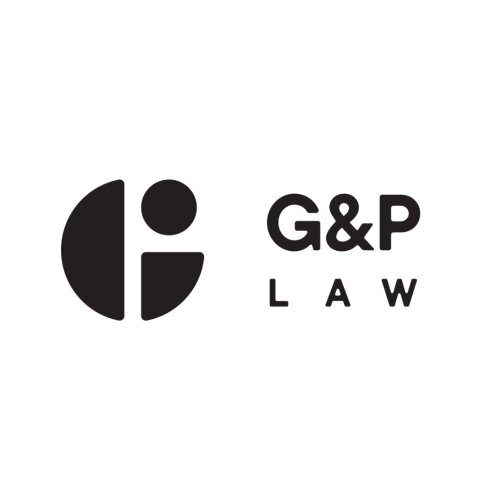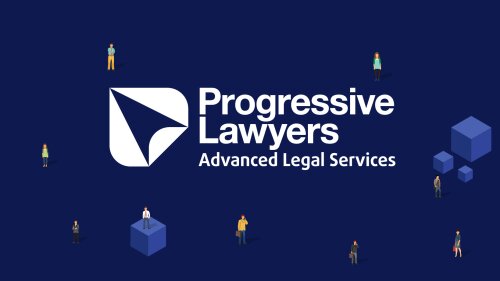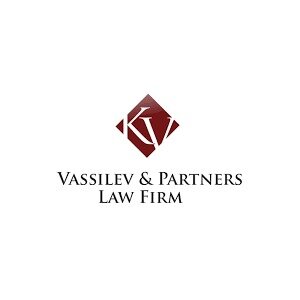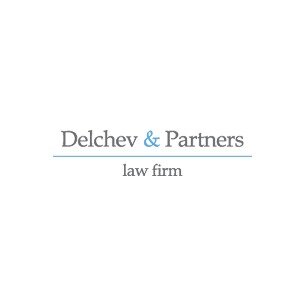Best ESG Advisory & Compliance Lawyers in Sofia
Share your needs with us, get contacted by law firms.
Free. Takes 2 min.
List of the best lawyers in Sofia, Bulgaria
About ESG Advisory & Compliance Law in Sofia, Bulgaria
Environmental, Social, and Governance (ESG) Advisory & Compliance is a rapidly developing field in Sofia, Bulgaria. It focuses on helping businesses align their operations with sustainable practices, ethical governance, and social responsibility. ESG law in Bulgaria blends elements from environmental regulations, labor laws, anti-corruption statutes, corporate disclosure requirements, and more. As local and EU standards on ESG evolve, companies operating in Sofia are increasingly required to demonstrate transparency and responsibility in these areas. Legal specialists provide essential guidance to ensure businesses meet compliance obligations and harness the benefits of strong ESG performance.
Why You May Need a Lawyer
ESG Advisory & Compliance matters can be complex due to shifting regulations and heightened stakeholder expectations. You may need legal help in situations such as:
- Preparing for ESG reporting in line with Bulgarian or EU directives
- Navigating corporate sustainability and climate-related disclosures
- Adhering to new legislative requirements after mergers or acquisitions
- Responding to regulatory investigations or enforcement actions
- Adapting internal policies and business models to meet ESG criteria
- Addressing supply chain risks and due diligence requirements
- Dealing with labor, diversity, and equality obligations
- Managing disputes or complaints related to ESG topics
- Seeking advice on integrating ESG into corporate strategies
- Obtaining certifications or participating in sustainability initiatives
A lawyer experienced in ESG Advisory & Compliance in Sofia can help you navigate legal complexities, avoid penalties, safeguard reputation, and add value to your business.
Local Laws Overview
In Sofia, ESG compliance is shaped by both Bulgarian national law and European Union regulations. The most influential frameworks are:
- Non-Financial Reporting Directive (NFRD): This EU directive mandates certain large companies to disclose information on environmental, social, and employee matters, respect for human rights, and anti-corruption. Bulgaria has implemented the NFRD in its national legislation.
- Corporate Sustainability Reporting Directive (CSRD): The CSRD, set to replace and broaden the NFRD, will require more detailed and extensive disclosures from companies, including those listed on the Bulgarian Stock Exchange.
- Environmental regulations: Bulgaria’s Environmental Protection Act and related laws enforce sustainability and pollution controls. Compliance is essential for all businesses impacting the environment.
- Labor and equality laws: Bulgarian labor code and anti-discrimination laws build the social element of ESG, reinforcing workplace inclusivity, safe conditions, and fair pay.
- Anti-corruption and governance rules: Laws relating to corporate transparency, anti-bribery, and ethical conduct form the governance pillar of ESG in Bulgaria.
- Due diligence and supply chain legislation: Both domestic law and EU measures may require companies to conduct due diligence on human rights or environmental risks in their supply chains.
Staying updated is crucial, as the Bulgarian regulatory landscape is developing in tandem with EU-level policies.
Frequently Asked Questions
What is ESG and why is it important for my business in Sofia?
ESG stands for Environmental, Social, and Governance. It refers to the set of standards that companies are expected to follow to operate responsibly. Becoming ESG-compliant enhances sustainability, ensures legal compliance, and can improve investor and customer trust.
Who needs to comply with ESG regulations in Bulgaria?
Larger companies, listed companies, financial institutions, and some subsidiaries of foreign firms must currently comply with non-financial and ESG reporting. However, ESG requirements are expanding and starting to affect smaller businesses too.
What are the consequences of not meeting ESG requirements?
Non-compliance can result in financial penalties, regulatory investigations, loss of public trust, damage to business relationships, and restricted access to finance or tenders.
How often do ESG laws change in Bulgaria?
ESG requirements are evolving rapidly due to new EU directives and increased enforcement at the national level. Businesses must monitor changes regularly and update their policies accordingly.
Is ESG reporting mandatory for all companies?
Currently, only certain large or listed companies must provide comprehensive ESG reporting, but pending EU regulations will expand reporting obligations to a broader range of entities in the coming years.
Does ESG compliance only cover environmental issues?
No, ESG covers environmental, social (labor, diversity, community impact), and governance (corporate ethics, transparency) issues, all of which are relevant for compliance in Bulgaria.
What kind of documents and evidence are required for ESG compliance?
Typical documents include sustainability reports, environmental impact assessments, employee welfare data, anti-corruption policies, supply chain audits, and board governance records.
Can a lawyer help me create an ESG strategy?
Yes, an ESG lawyer can help you assess risks, create policies, develop a reporting framework, and ensure your strategy meets all local and EU legal requirements.
How do I know if my current policies meet ESG standards?
An ESG compliance lawyer can review your internal policies, offer recommendations, and benchmark your procedures against legal requirements and best practices.
Are there incentives for companies that excel in ESG in Sofia?
Yes, companies with advanced ESG practices may benefit from improved access to investment, positive public image, and in some cases, governmental incentives or recognition.
Additional Resources
If you are seeking more information or support related to ESG Advisory & Compliance in Sofia, Bulgaria, the following resources may be useful:
- Ministry of Environment and Water: The key government authority for environmental regulation in Bulgaria.
- Bulgarian Stock Exchange: Publishes guidelines and rules for listed companies, including ESG disclosure requirements.
- Bulgarian Chamber of Commerce and Industry: Offers resources and seminars on corporate responsibility and best practices.
- European Commission Representation in Bulgaria: Shares updates on EU ESG and sustainability directives affecting local entities.
- Local law firms and ESG consultancies: Provide legal assessments, policy advice, and compliance support tailored to your business.
Next Steps
If you suspect your company may be subject to ESG regulations or if you are proactive about sustainability, it is important to take the following steps:
- Review your internal policies, operations, and supply chain for ESG risks or compliance gaps
- Identify which local and EU ESG regulations apply to your business
- Contact an ESG Advisory & Compliance lawyer in Sofia for an initial assessment or consultation
- Prepare documentation and data required for ESG reporting
- Develop an ESG strategy in consultation with legal experts
- Train your management team on ESG compliance and reporting standards
Taking timely legal advice will help you navigate evolving ESG obligations, demonstrate your company's commitment to sustainability, and place your business ahead of regulatory and market expectations.
Lawzana helps you find the best lawyers and law firms in Sofia through a curated and pre-screened list of qualified legal professionals. Our platform offers rankings and detailed profiles of attorneys and law firms, allowing you to compare based on practice areas, including ESG Advisory & Compliance, experience, and client feedback.
Each profile includes a description of the firm's areas of practice, client reviews, team members and partners, year of establishment, spoken languages, office locations, contact information, social media presence, and any published articles or resources. Most firms on our platform speak English and are experienced in both local and international legal matters.
Get a quote from top-rated law firms in Sofia, Bulgaria — quickly, securely, and without unnecessary hassle.
Disclaimer:
The information provided on this page is for general informational purposes only and does not constitute legal advice. While we strive to ensure the accuracy and relevance of the content, legal information may change over time, and interpretations of the law can vary. You should always consult with a qualified legal professional for advice specific to your situation.
We disclaim all liability for actions taken or not taken based on the content of this page. If you believe any information is incorrect or outdated, please contact us, and we will review and update it where appropriate.















